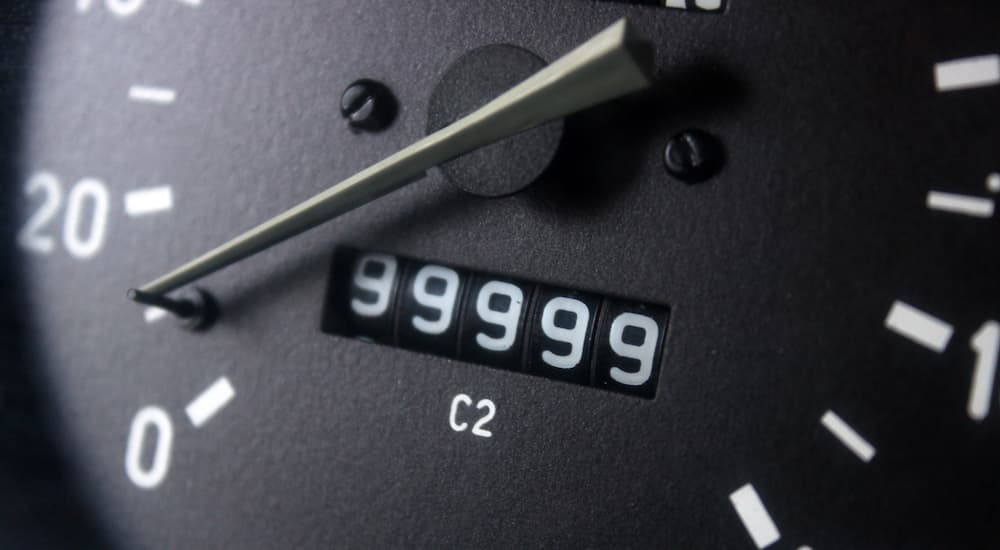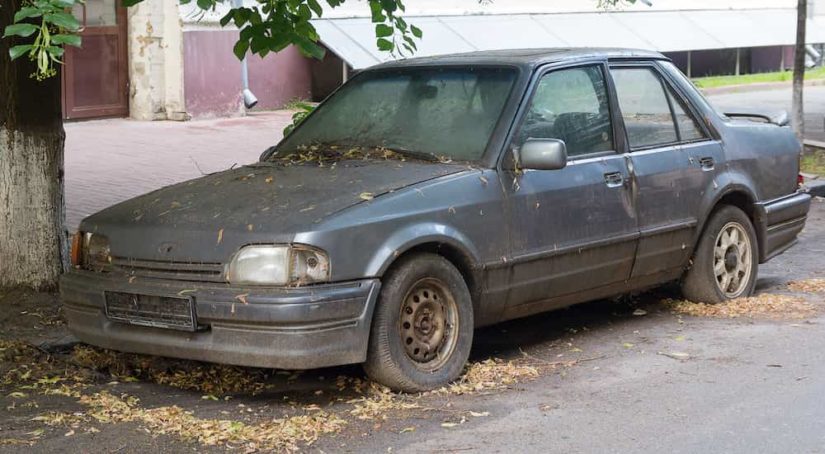There are many reasons why people decide to sell their cars, some good, and some not so good. If you are wondering if now is a good time to sell your car, making a decision can be difficult, and there is no one right answer for everyone. The condition of the car, your financial situation, and even your sense of style are just some of the many factors that need to be considered. The state of the car market also plays an important role, as the current market disruptions have upended a lot of traditional thinking about buying and selling cars. Today, new cars are still almost impossible to find, and used cars are selling for far more than they did a few years ago. Still, the major factors that go into deciding whether it is time to sell your car have remained the same.
Time for a Change
One of the most common reasons why people sell cars is simply because they want to drive something different. After driving a car for several years, you might simply feel it is time for a change of pace. This can be both a good reason and a bad reason to sell your car. Buying a new car is a large expense, and if your current car works just fine and fits your lifestyle, then that is an expense you can avoid by simply sticking with the car you have. Still, if you have the money and just aren’t feeling your current ride anymore, then selling for something new isn’t a terrible choice. Afterall, the average American spends over 300 hours a year in their car, so feeling happy with the vehicle you are driving can improve your quality of life.
What is important is to recognize that this is the reason you want to sell your car. It is easy to invent reasons why you need a new car when the truth is that you just feel it is time for a change. Afterall, it is easier to justify such a large purchase if you can claim to yourself that your current car is no longer good enough. So before heading to the dealership, carefully consider the reason why you want to sell your car to determine whether it is really the best decision.

High Mileage
These days, drivers are keeping their cars longer than ever before. In fact, one 2018 survey found that new car buyers are waiting an average of 79.3 months before selling their vehicle. Given that the average American drives around 14,000 miles a year, that means most new car buyers are selling around when their car hits the dreaded 100,000-mile mark. However, just because your car’s odometer is about to roll over to six digits doesn’t mean it’s time to sell. Modern cars last far longer than they used to, and 100,000 miles is more middle-age than end-of-life.
In fact, while new car buyers might be selling around the 6.6-year mark, the average age of automobiles in America now stands at 12.1 years. Short of a major accident or significant rusting, there are few reasons why a modern vehicle can’t last 200,000 miles or more with good maintenance. So if your odometer is ticking upwards and you’re worried that you will have to buy a new vehicle, the odds are that you can relax and push off your purchase a few more years.
Poor Reliability
While vehicles are lasting longer than ever, one of the issues with owning an older vehicle is that reliability tends to go down with time. The major mechanical components of most modern cars can last a long time, but the same can’t always be said for the countless other parts that make up a vehicle. If your car has reached the point where it seems like it needs repairs every month, then buying a new vehicle might actually be the cheaper option. Gather up those repair bills and see how much you’re actually paying a month, and you might be surprised to see that a new car note might not strain your budget as much as expected. Of course, if your current car is constantly breaking down and leaving you stranded on the side of the road, then it is probably time to buy a new car, even if it costs more. After all, having a car you can’t count on can sometimes be worse than having no car at all.
Out of Warranty
One of the major benefits of buying a new or Certified Pre-Owned (CPO) car is the manufacturer warranty that comes with it, and if you are approaching the end of the warranty period, then you might be thinking that it’s time to sell and buy a new car. However, you might want to hold off on that purchase and first consider the actual value of a warranty. The standard new or CPO warranty only protects against manufacturing defects, and if your car has made it the 60,000 miles that the average powertrain warranty covers without any defects showing up, then the odds are that the warranty expiring isn’t going to dramatically increase the cost of ownership. On the other hand, if you’re already on first-name terms with the staff at your dealership service department because of all the warranty work they’ve performed, then reaching the end of your warranty is probably a good time to sell, and you might want to consider buying a different brand next time.
Bad Fuel Economy
As gas prices continue climbing, you might be one of the many drivers wondering if it is time to trade in your car for something more efficient. Unfortunately, even with the high cost of gas these days, buying a new car is still rarely a good way to save money. This is particularly true if you are considering the switch to an electric vehicle as these models tend to be rather expensive. While lower gas bills are certainly appealing, it will generally take years for a more efficient vehicle to pay for itself, and who knows what gas prices will look like two or three years from now? As unlikely as it may seem now, we could be back to cheap gas before your more fuel-efficient car pays for itself.
There are situations where switching to a more fuel-efficient vehicle can make economic sense, but it generally requires trading a real gas-guzzler for something significantly smaller, like downsizing from a Suburban to Prius. Of course, if your lifestyle requires a Suburban, then a Prius probably isn’t going to work for you. Trading for an older used car of similar age to your current vehicle is another way to reduce the cost of switching to something that burns less gas, but you will still lose money in the trade, and older vehicles often aren’t as efficient as new models. Especially since many manufacturers weren’t even building electric vehicles and plug-in hybrids a few years ago.
Depreciation and Financing
The final and arguably most important point to consider when you start thinking about selling your car is money––specifically depreciation and financing. In a normal market, all vehicles follow a fairly similar depreciation curve, losing a lot of value in the first few years and then slowly leveling off. Generally, a new car loses roughly half its original value during the first three or four years. Selling during this time means taking the largest loss from depreciation and should be avoided as much as possible. After year eight, depreciation from age becomes nearly flat, with the mileage and the condition of the vehicle becoming more important. The longer you keep a vehicle past this point, the more cost-effective the purchase becomes, as you are effectively paying less per year of ownership in terms of lost value from depreciation.
The second factor in the equation is financing. As of 2018, some 85% of new car purchases and 53% of used car purchases were financed, so the vast majority of drivers need to consider their car loan when selling their car. This is important because loan payoff usually lags behind the loss of value from depreciation––especially with the average car loan now lasting 72 months. If you sell your car before you have paid off the loan, then you can be left owing a substantial amount of money on a vehicle you no longer own. Far too many car shoppers simply roll this money into their next car loan, putting themselves deeper and deeper underwater with every car purchase. In general, you should wait until after you have paid off your current vehicle before shopping for a new car and should always try to avoid selling a vehicle that is worth less than you owe.

Market Disruptions
Since 2020, the car market has been far from normal. Factories have been idled, the chip shortage has cut back production, congested ports have held up shipping, and now the war in Ukraine is disrupting markets again. The lack of new cars means that it can be difficult to simply visit a dealership and drive off in a new vehicle, and limited inventory means that used cars are now selling for far more than they used to. These disruptions mean that it is a great time to sell a car but a terrible time to buy a car. If you are unloading a second car you don’t drive much, now is the time to do it. But if you need a new daily driver, then things are more difficult.
If you normally buy used, then you might want to put off your purchase as used car prices are still higher than ever. New cars are also more expensive than they used to be, but prices haven’t increased by as much as used cars, which means trading in a used car for a new car is often a better deal than before. However, limited dealership inventories mean that you may need to custom order your new car from the factory, which can be a three to six-month wait. So if you think you are going to need a new car soon, it pays off to plan ahead and start shopping now rather than putting things off.
Is It Time to Sell?
Deciding to sell a car is never easy, and things are more complicated today than ever before. However, the modern car owner has more tools and resources available to help come to an informed decision. While there are many important factors to consider, once you have identified what matters to you, it is simple to gather the necessary information and fully research everything from your current car’s value to what new car you should buy. If the sale still looks like a good idea once your research is complete, then yes, it is time to sell your car.



